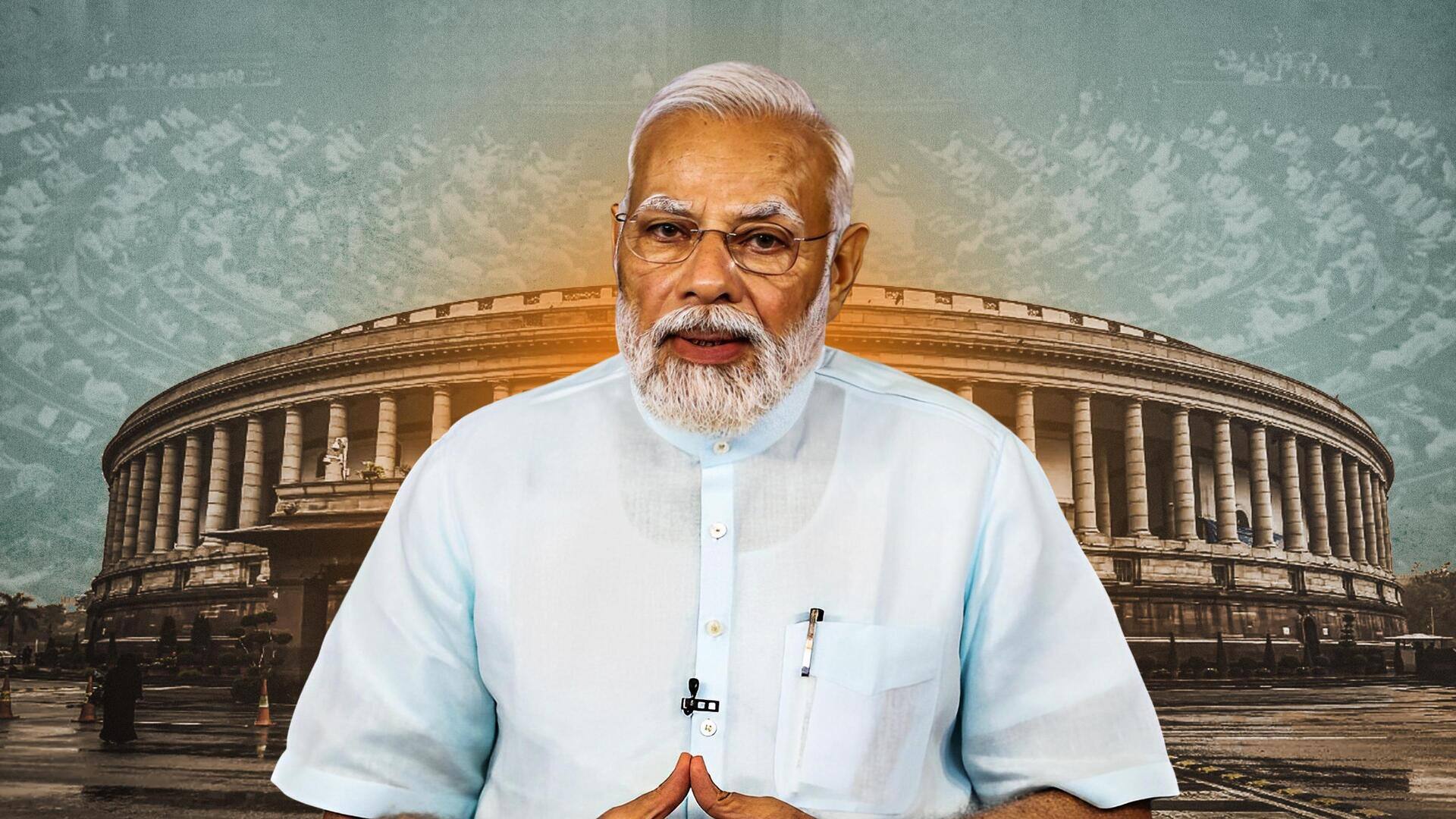
Here's why women's reservation is unlikely before 2027
What's the story
After nearly three decades of stalling, the Women's Reservation Bill—or the Naari Shakti Vandan Adhiniyam—is on the verge of becoming law in India. However, the promised 33% quota for women in Parliament and state legislative assemblies might only be implemented by 2029, NDTV reported. Women can avail of the parliamentary quota only after the first delimitation exercise following the bill's enactment, expected to occur after the Census in 2027. So, it might come into effect for the 2029 general election.
Delimitation
What is delimitation?
Before implementing women's reservations in the Parliament and state legislatures, the constituencies will need to be redrawn or delimited. Article 82 of the Indian Constitution, amended in 2002, reportedly states that the delimitation of constituencies can be carried out based on the first Census after 2026, which would have been in 2031 as per norms. However, the decennial Census scheduled in 2021 is due and expected to be conducted in 2027, following which constituencies could be redrawn.
Against
Southern states against immediate delimitation
For the delimitation exercise to take place sooner, Article 82 must be amended. However, it will be difficult to build consensus on it as southern states are reportedly against immediately redrawing constituencies. Meanwhile, the Bharatiya Janata Party (BJP) government at the Centre has retained the previous Congress government's version of the Women's Reservation Bill covering Lok Sabha and legislative assemblies. The Rajya Sabha and legislative councils are excluded. Notably, the quota will be applicable for 15 years after its enactment.
Break up
OBC reservation not included in bill
Tabling the bill in the Lok Sabha on Tuesday, Law and Justice Minister Arjun Ram Meghwal said 181 seats in the Lower House will be reserved for women once the bill is passed. Around 33% of the 84 LS seats for Scheduled Castes (SCs), as well as 33% of the 47 seats for Scheduled Tribes (ST), will be reserved for women. The bill doesn't include reservations for Other Backward Classes (OBCs), as such a provision doesn't exist for the legislature.
What Next?
Parliament, state assemblies have around 14% women
The demand for OBC reservations within the quota for women was raised by parties like the Samajwadi Party (SP) and Rashtriya Janata Dal (RJD). In fact, these parties previously opposed the bill on this very point for nearly three decades. To note, at present, women constitute only 14% of members in the Parliament and legislatures in India, reportedly the highest ever in independent India's history but significantly lower than the global average.